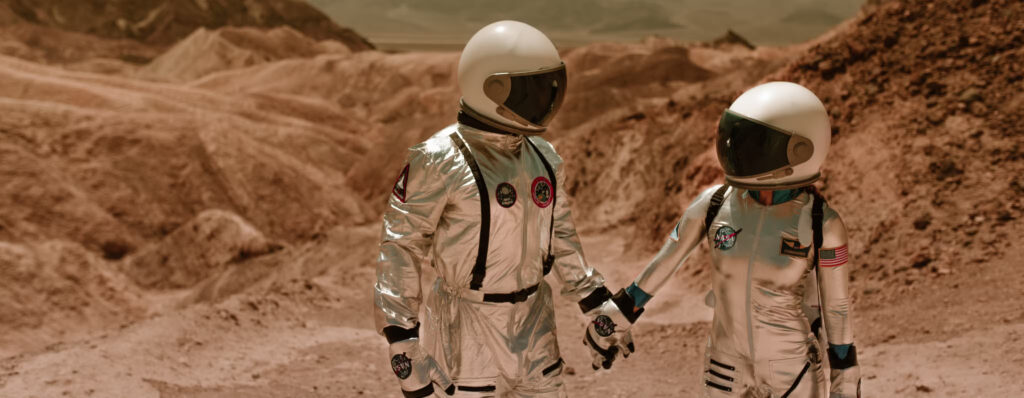Technocratic Paradigm vs. Comprehensive Human Development
An analysis of the anthropological crisis and the need for an advanced humanism

In recent decades, humanity has developed immeasurable techno-scientific power. Simultaneously, the human being has become convinced that this power will lead to complete emancipation from it.
We observe how the so-called “technocratic paradigm” has been established in our global civilization, in a hegemonic and transversal way, that is, that ideology that maintains that the power of technoscience applied to economic and social life leads to unlimited progress and the end of human evolution.
However, in our opinion, this paradigm is the cause of the serious problems that we suffer and that threaten the very survival of humanity.
From the technocratic paradigm, the advent of the best of all possible worlds is promised through technoscience and, at the same time, it is denied that human beings and the world in which they live have a meaning that should guide human behavior. The spiritual gaze is thus obscured by the power of exponential sciences and technologies.
That is why in these times, voices have been raised – among them those of Pope Francis – calling attention to a humanity that is asleep and incapable of becoming aware of its limits. While it is true that each era tends to develop a poor awareness of its limits, on this occasion, humanity is risking its survival.
In his time, Pope Paul VI was the first pontiff of the Catholic Church to denounce the emergence of the technocratic paradigm replacing the dominant ideologies in the bipolar world of the second half of the 20th century. Paul VI detected how the human being stopped being the end and became the instrument of technology.
And the fact is that technology, today, instead of remaining an instrument in the hands of integral human development, has become an end in itself that often turns against the person themselves.
This technicalization of our lives arises because nature (and the human being himself) comes to be seen as a formless matter for man to transform at his whim through increasingly greater technical power.
Later, Pope Benedict XVI, in his encyclical Caritas in Veritate, introduced the concept of “integral human development” as a counterpoint to that technocratic risk that was being inexorably fulfilled in our days.
According to Benedict XVI, “technique is a deeply human fact linked to the autonomy and freedom of man. In technique, the mastery of spirit over matter is manifested and confirmed. Through it, man can fulfill the divine mandate to cultivate and guard the earth, and by doing so, reinforces the alliance between human beings and the environment as a reflection of God’s creative love.”
For his part, Pope Francis has also denounced the technocratic paradigm in his encyclical Laudato Si’. This document represents a reflection on the technique where the extraordinary importance for human and people development is highlighted, as long as it is oriented towards the common good. However, Francis also warns that humanity has never had so much power over itself. However, there is no guarantee that you will use it well, especially considering the way you are currently doing it.
Francis warns us about the way of understanding life and human action that has gone astray and that contradicts reality to the point of damaging it. This deviation consists in the fact that, compared to a conception of technology understood as an instrument of the freedom of the person, another has been imposed that conceives technology as an element of absolute freedom that wishes to dispense with the limits inherent to things.
This is why Francis also warns us of a “deviant anthropocentrism” that is at the base of the technocratic paradigm. In this way, the Pope asks himself the following: What does this emancipation consist of in the face of the inherent limits of things? And the answer that emerges is that the contemporary human being considers that nature is nothing more than the formless thing totally available for manipulation.
Although it is true that human beings have always intervened in nature, previously their attitude was to receive what natural reality allows, reaching out to the Creator. On the other hand, now, what he is interested in is extracting everything possible from things through the imposition of the human hand, which tends to ignore or forget the very reality in front of it. From here we easily move on to the idea of infinite and unlimited growth that so excites economists, financiers and technologists. The cosmopolitan elite of globalism is imbued with these countervalues.
All of this supposes the falsehood of the infinite availability of the planet’s goods, which leads to plundering them to the limit and beyond the limit.
From the hegemonic technocratic approach, the progress of humanity is a necessary consequence of technological development and the maximization of benefits. Behind the absolutization of technology, there is an erroneous and very dangerous anthropological vision that coincides with that deviant anthropocentrism prophetically denounced by Pope Francis.
In short, the anthropological crisis that we are experiencing, together with the imposition of the technocratic paradigm, leads us to the denial of the primacy of the human being and his condition as a creature of God. In this way, the technocratic paradigm is based on a deviant anthropocentrism that reduces human beings to the condition of merchandise that is discarded as soon as it is no longer useful, giving rise to what Pope Francis calls “the culture of throwaway.”
Below, we establish in a very synthetic way some items that can be identified with each of these two contrasting worldviews.
Technocratic paradigm
- Transhumanism and posthumanism: These two movements of thought are currently constituted as a bioideology and a biopower in accordance with the globalitarianism that is being implemented on the planet based on the proposals of a multipolar New World Order and the 2030 Agenda omnipresent in the West.
- Transhuman: From this bioideology, a human being in transition is proposed, a cyborg, a hybrid entity with human intelligence integrated with artificial intelligence and genetically modified. Through this “human improvement” we seek to achieve the condition of an expanded human, with increased physical and cognitive capabilities, which is far above common human faculties. In short, a human being deified by his own biotechnological means (Homo Deus) is proposed.
- Posthuman: In a later stage, the technocratic paradigm aims for us to reach the condition of posthumans, disregarding our corporeality, reincarnating in another silicon or holographic “body,” thus achieving the transfer of mind and/or consciousness to an artificial substrate or bio-cybernetic vitology.
- Cybernetic immortality: Finally, that techno-religion that, ultimately, turns out to be transhumanism from its neognostic side, proposes an immanent transcendence in cyberspace and in virtual metaverses as a “low cost” earthly paradise. We are presented with the old temptation of the ancient serpent that falsely again tells us: You will be like gods.
Comprehensive human development
- Advanced humanism: In the face of transhumanism and posthumanism, we propose an advanced humanism for this biotechnological society based on Christian anthropology, the Social Doctrine of the Church and Catholic eschatology that shows us, with hope, what is the final destiny of the human being and of creation according to the saving plan of the Creator. That is why, moving towards the celebration of the bimillennial of the Redemption that Jesus Christ offered us, we propose a 2033 agenda that increasingly helps us accept the will of God.
- Person: From this Christian conception, we see human beings as “viators”, that is, as rational creatures who are on a pilgrimage in this life and who aspire and walk towards eternity. In this way, from the condition of the person we highlight their dignity, their freedom, their spiritual intelligence and their wisdom of the heart, since we know that we are creatures created in the image and likeness of God (“Imago Dei”).
- Blessed: From the Christian worldview, the purpose and goal of integral human development is to reach the condition of “blessed” and participate in the Glory of heaven. In this way, after the resurrection there will be the reunion of our immortal soul with our glorious body, that is, with our transfigured body as Jesus showed himself on Mount Tabor, as well as in the time he lived with the apostles after his resurrection, before his ascension to heaven.
- Eternal life: The transcendence that Christianity offers us on this path of perfecting the human project during our lives is of a divine nature. We have placed our trust and hope in the promise of a restoration of all creation and of humanity saved and redeemed. We await, therefore, the “new heavens and the new earth,” the Celestial Jerusalem, the recapitulation of all things and of the entire creation in Christ, and ultimately, eternal life.
As a summary, the proposals of the Christian worldview focus on the integral human development of the person and on the horizon of hope that eternal life and the joy of being blessed in heaven offers us.
Faced with this exciting perspective, the materialist proposals of the technocratic paradigm, reductionist and without supernatural hope, offer us a deviant anthropocentrism that seeks to achieve, with the power of techno sciences, a posthuman condition without limits, without meaning and without an authentic vital purpose.
In my opinion, we must allow ourselves to be illuminated by the Holy Spirit and show with greater enthusiasm and depth the magnificent treasure that we can offer the world with Christian anthropology and Catholic eschatology, since they are an immense source of hope for these times. We must not be afraid and openly propose our offer of integral human development and our improvement project to achieve eternal life.
Related

Facing Divorce as a Christian Couple
Laetare
28 March, 2025
2 min

Mars Colonization: Technological Progress or Threat to Human Dignity?
Observatorio de Bioética UCV
28 March, 2025
9 min

The Good Smell of Coffee
Edistio Cámere
27 March, 2025
3 min

The Keys of a Christian Physician: Healing with Body and Soul
Javier Ferrer García
27 March, 2025
2 min
 (EN)
(EN)
 (ES)
(ES)
 (IT)
(IT)

